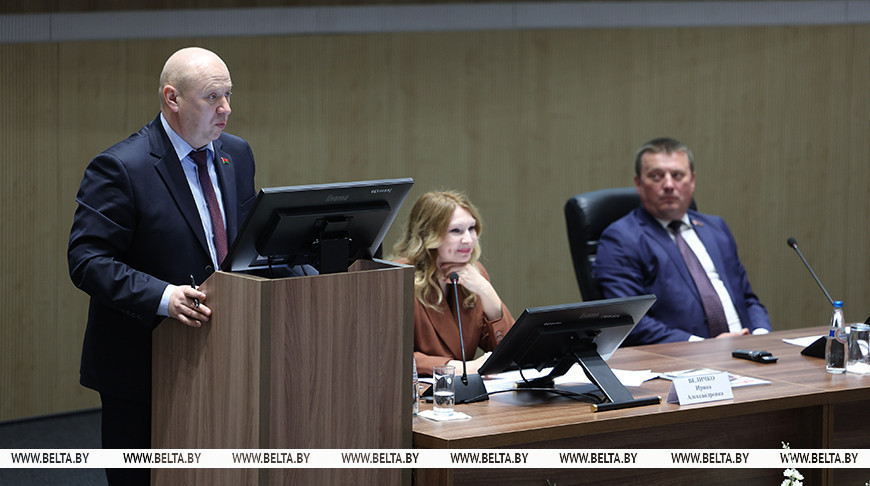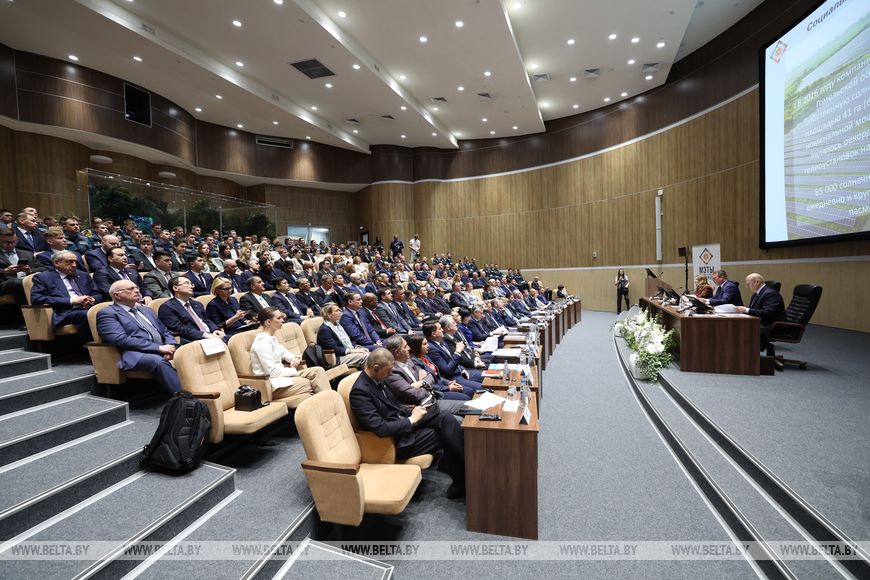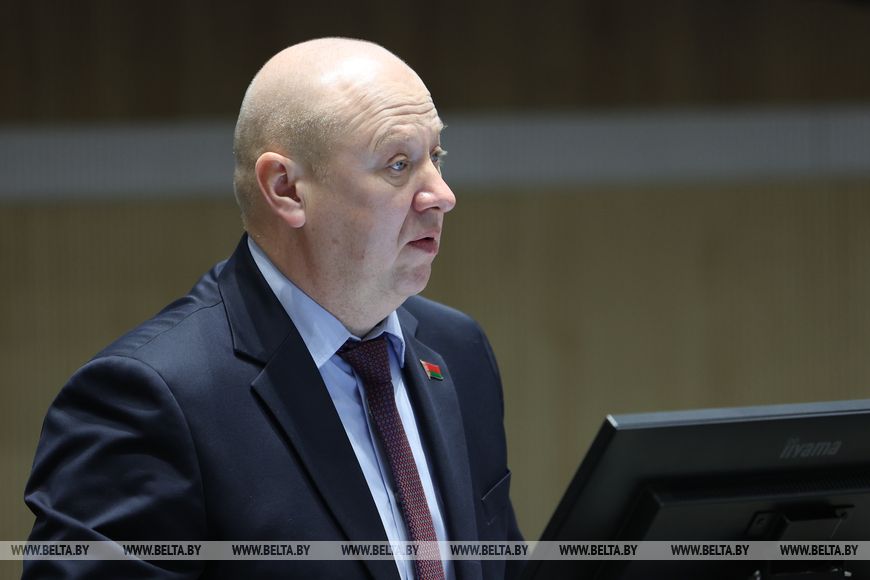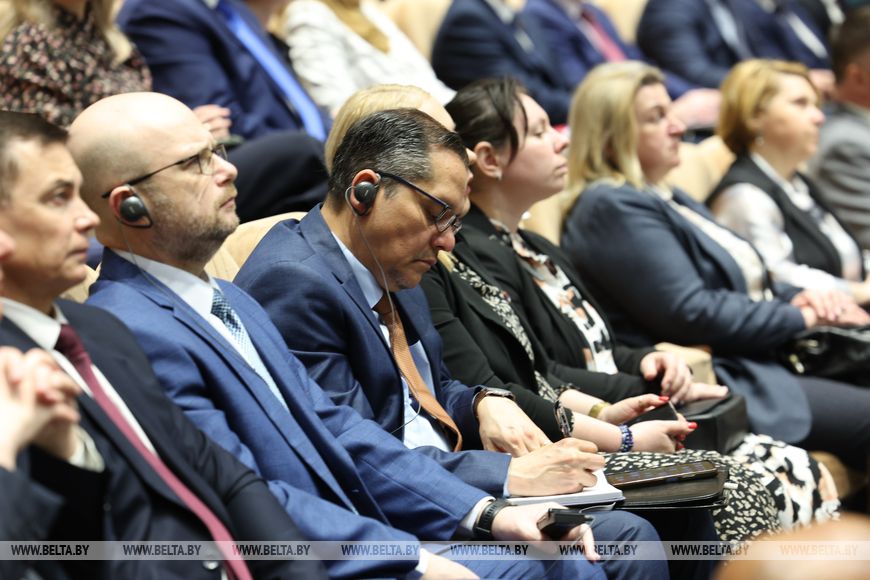
MINSK, 24 April (BelTA) - Belarus demonstrates strong commitment to the principles of sustainable development, Belarusian Deputy Emergencies Minister Sergei Salanovich said at a meeting of the Council on Sustainable Development to mark to the International Chernobyl Disaster Remembrance Day at the National Health and Safety Center of the Emergencies Ministry in Minsk on 24 April, BelTA has learned.
“Belarus demonstrates its firm commitment to the principles of sustainable development, which is both a global agenda and a necessity for the country’s future. Sustainable development is impossible without reducing the risk of emergencies, which require substantial financial resources to overcome, and also lead to significant material losses and human casualties, damage the environment, and can change the way of life in the regions for a long period of time,” Sergei Salanovich said. “The Chernobyl disaster has had a negative impact on all aspects of life of the Belarusian state. The nature and magnitude of the damage caused by the Chernobyl NPP accident were powerful destabilizing factors that affected all sectors of the country’s social and economic development. The area of radioactive contamination covered 3,678 settlements which were home to more than 2 million people. A total of 479 settlements were fully resettled. More than 330,000 people had to leave their homes in the contaminated areas. About 340 industrial enterprises got into the contamination zone. The conditions of their functioning significantly deteriorated.”
The accident at the Chernobyl NPP had a significant impact on the development of the state system of prevention and elimination of emergency situations in Belarus, the deputy minister said. “The Ministry of Emergency Situations and Protection of Population from the Consequences of the Chernobyl NPP Accident was set up in 1994 in an effort to concentrate state efforts on eliminating the large-scale consequences of the unprecedented man-made disaster, as well as on developing a policy aimed at prevention and preparedness to respond to emergencies,” he emphasized. “Solving the issues related to mitigating the consequences of the Chernobyl disaster has always been one of the most important tasks for Belarus. Throughout the time since the accident, Belarus has been consistently restoring life in the affected areas, having come a long way from the elimination of the emergency situation to the revival and sustainable social and economic development of the affected regions,” he said.

“Belarus is addressing the issues related to the mitigation of the consequences of the Chernobyl NPP accident not only through national efforts. Belarus receives important international support through the UN organizations (IAEA, UNDP, UNICEF) in the form of technical assistance programs and projects. Belarus also gets support and assistance from the governments of a number of other countries, including China, Japan, and Switzerland. The efforts of numerous public organizations of Italy should be mentioned as well. Nearly 500,000 Belarusian children have visited Italy on recuperation holidays. Systematic work is underway as part of the Union State of Belarus and Russia. Five programs of joint activities to overcome the consequences of the Chernobyl NPP accident have been implemented. This work will be continued,” Sergei Salanovich added.

















